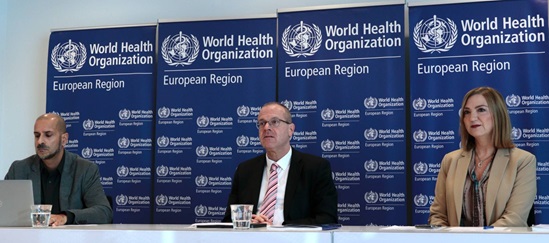Mental health
Mental health is shaped by where we live, learn, work and connect. That means families, schools, workplaces, housing, transport, justice and even digital spaces all play a role.
Good public mental health is essential for a functioning society, yet access to care for people with mental ill-health is often difficult and sometimes denied. It is not only the pervasive social stigma, which prevents people in need from seeking and receiving support, but the structural stigma, embedded in laws, policies and institutions, which can become a form of discrimination that may limit access to health care, restrict job opportunities and perpetuate inequality. It is vital to not only address the needs of people who live with mental health conditions but also to protect and promote the mental health and well-being of all people and recognize that mental health support does not begin or end in a clinic.
Globally, people with severe mental health conditions die 10 to 20 years earlier than the general population.
Mental health conditions are on the rise across Europe, made worse by recent crises – from the pandemic to conflict, to climate change and economic uncertainty. In the WHO European Region, 1 in 6 people live with a mental health condition. Since the COVID-19 pandemic, depression and anxiety among young people have surged by an estimated 25%, and among 15- to 29-year-olds, suicide is now the leading cause of death in the Region.
If sectors work together, we can create real, lasting change. Embedding mental health in all policies can create an enabling environment that protects mental health and well-being. A student can’t learn well if they feel anxious or unsafe. A worker can’t perform well without support. A person without stable housing, access to transport or protection online is at greater risk of distress. All of this illustrates why mental health can’t be left to the health sector alone – it needs action across sectors.
WHO improves mental health in the Region through supporting the development of:
- policy and services
- research and evidence
- guidelines and tools, to set norms and standards
- capacity-building activities
- advocacy and partnerships.













